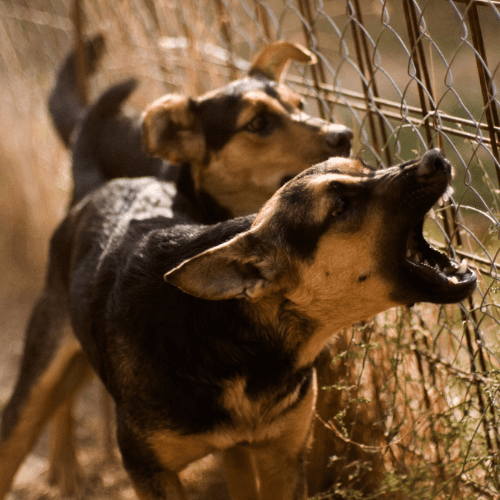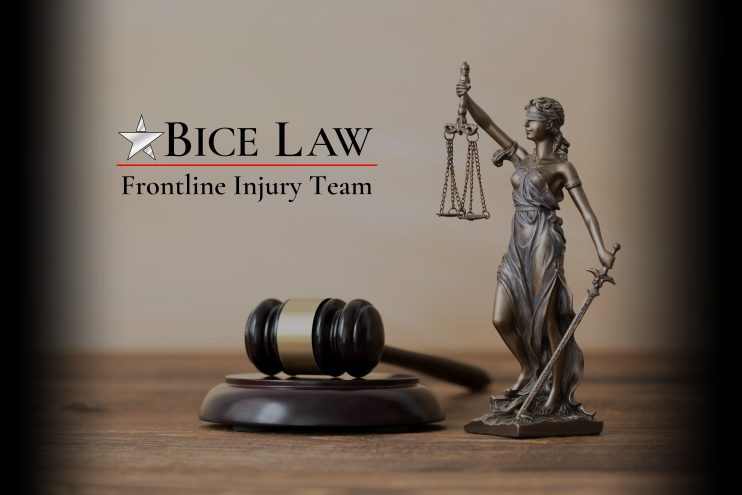North Carolina’s Dog Bite Law | The Hunting Dog Exception
Bice Law LLC | Updated October 30, 2023
 North Carolina’s dog bite laws, generally hold dog owners liable for injuries caused by their dogs. However, there is an exception. This intriguing exception is known as the “hunting dog exception.” This exception recognizes the unique role that hunting dogs play in the state and provides certain legal protections to their owners. A North Carolina Dog Bite Lawyer will have the knowledge and expertise needed to navigate your injury claim and get you the most compensation available, while you focus on recovering from your injuries.
North Carolina’s dog bite laws, generally hold dog owners liable for injuries caused by their dogs. However, there is an exception. This intriguing exception is known as the “hunting dog exception.” This exception recognizes the unique role that hunting dogs play in the state and provides certain legal protections to their owners. A North Carolina Dog Bite Lawyer will have the knowledge and expertise needed to navigate your injury claim and get you the most compensation available, while you focus on recovering from your injuries.
North Carolina’s hunting dog exception, codified under N.C. Gen. Stat. § 67-4.1, acknowledges that hunting dogs, often trained to assist hunters in locating and retrieving game, may behave differently than the average household pet. As such, it offers legal protection to the owners of hunting dogs under specific conditions.
Lawful Hunting Activity: The exception only applies when a dog bite occurs during the course of a lawful hunting activity. This means that the dog must be actively participating in a hunting expedition, such as tracking or retrieving game, at the time of the incident.
Trespassing Restrictions: The protection is not absolute. If a victim was lawfully on the property or had permission to be there, the hunting dog owner can still be held liable for a dog bite.
Care and Control: The dog owner must maintain reasonable care and control over the hunting dog, taking steps to prevent it from causing harm to others. This means that if the owner is negligent in handling the dog, they can still be held responsible for any resulting injuries.
Provocation: If the victim’s actions provoke the dog, it may not be subject to the hunting dog exception. In this case, the owner might still be liable.
It’s important to note that the hunting dog exception does not grant hunting dogs unlimited immunity. It merely recognizes the unique circumstances surrounding hunting dogs and offers a level of protection to their owners during lawful hunting activities.
Liability Outside of the Exception
Outside of the hunting dog exception, North Carolina’s dog bite laws follow a strict liability system. In general, dog owners can be held liable for any injuries their dogs cause, regardless of the dog’s prior behavior or the owner’s knowledge of the dog’s aggression. This means that if a dog bite occurs outside of lawful hunting activities, the owner is likely to be held responsible for the damages.
Liability within the Exception
When a dog bite occurs within the context of a lawful hunting activity and meets the criteria of the hunting dog exception, the owner’s liability is limited. The victim may still be eligible for compensation if they can prove that the dog owner failed to maintain reasonable care and control over the dog, or if the victim did not provoke the dog.
However, the hunting dog exception does offer significant protection to hunting dog owners who are engaged in lawful hunting activities. It recognizes the potential risks involved in hunting and the distinct nature of hunting dogs’ behavior when they are assisting their owners.
The Significance of the Hunting Dog Exception
The hunting dog exception holds significant importance in North Carolina, a state with a rich hunting tradition. It acknowledges the contributions of hunting dogs and the unique circumstances of dog bites that may occur while hunting. By recognizing these special circumstances, the law helps preserve and promote hunting practices within the state.
It also provides a level of assurance to hunting dog owners that, under most circumstances, they will not be held strictly liable for dog bites that occur while pursuing their sport. However, owners must still be diligent in controlling their dogs and ensuring they do not pose undue risks to others in the field.
Preventive Measures
Hunting dog owners should take several preventive measures to ensure the safety of both their dogs and others during hunting activities:
-
Training: Properly train hunting dogs to obey commands and to remain under control during hunting excursions.
-
Leash and Muzzle: When not actively engaged in hunting tasks, it’s advisable to leash or muzzle your dog to prevent unexpected incidents.
-
Awareness: Be mindful of your dog’s behavior and any signs of aggression or discomfort.
-
Permission: Ensure that anyone accompanying you on a hunting trip has the appropriate permission to be on the property.
-
First Aid: Carry basic first aid supplies to address minor injuries if they occur.
North Carolina’s hunting dog exception recognizes the unique circumstances of hunting and provides some legal protections to hunting dog owners during lawful hunting activities. It strikes a balance between promoting the state’s hunting traditions and ensuring that dog owners maintain control over their animals. While it may offer some respite from strict liability, owners should still prioritize the safety and well-being of their dogs and others in the field. Understanding the hunting dog exception is crucial for both hunters and those who may encounter these dogs in the wild to coexist safely and responsibly.
What to do After a Dog Bite
If you are the victim of a dog bite or attack in North Carolina, you should first ascertain who the dog’s owner is and then seek medical attention. You may need to be treated for rabies, especially if the dog appears to be a stray. If the physical injury caused by the bite or attack appears severe, you should document with pictures your injury and make sure to keep any medical records that were created during the course of your treatment. You should also report any dog attack to your local animal control unit. A dog bite can be a distressing experience, but it’s essential to know how to react promptly and effectively to ensure your safety and well-being. Here are the crucial steps to take after a dog bite:
Clean the Wound: Immediately wash the bite wound with soap and warm water to reduce the risk of infection. Let the water flow over the wound for at least five minutes.
Apply Pressure: If the wound is bleeding, use a clean cloth or sterile bandage to apply gentle pressure to control the bleeding. Elevate the wound if possible.
Seek Medical Attention: Even if the bite seems minor, it’s important to see a healthcare professional. They will assess the wound, provide appropriate treatment, and may recommend a tetanus shot or antibiotics.
Report the Incident: Contact local authorities, such as animal control or the police, to report the dog bite. This helps ensure that the dog’s vaccination and behavior history is documented.
Identify the Dog: Try to identify the dog and its owner if possible. This information is crucial for any necessary follow-up actions.
Document the Incident: Take photos of the bite wound and the location where the incident occurred. This can be valuable for insurance claims and legal proceedings.
Contact an Attorney: If the dog bite is severe or the owner is uncooperative, consult a personal injury attorney for legal advice.
Follow-Up Care: Adhere to your healthcare provider’s instructions for wound care and take any prescribed medications.
Stay Informed: Understand your rights and responsibilities regarding dog bites, especially if you intend to pursue legal action or an insurance claim.
Remember that even minor dog bites can lead to complications if not properly treated. It’s always better to seek immediate medical attention and report the incident to ensure your safety and the safety of others.
The statute of limitations in which to file a lawsuit against a dog’s owner for injuries sustained in a dog attack is three years in North Carolina. If you have been the victim of a dog bite or attack, you may have a personal injury claim against the dog’s owner.
Contact the Personal Injury Law Firm of Bice Law
The personal injury firm of Bice Law will examine your case to determine the type and amount of damages that your injury warrants, including payments for medical expenses, lost income, pain and suffering, and any permanent disability. We’ll determine whether an out-of-court settlement or trial is the best strategy to obtain maximum benefits for you or your family. If you have suffered injury or harm because of someone else’s actions, take the first step to protect your legal rights – contact the personal injury firm of Bice Law serving both North and South Carolina.
You only have a limited time after your injury to file a claim, so act quickly. Call 877-BICE-877 today or submit an online request to get a free consultation with a personal injury attorney. We serve victims who have been injured by dog bites, and their families, across North Carolina.

